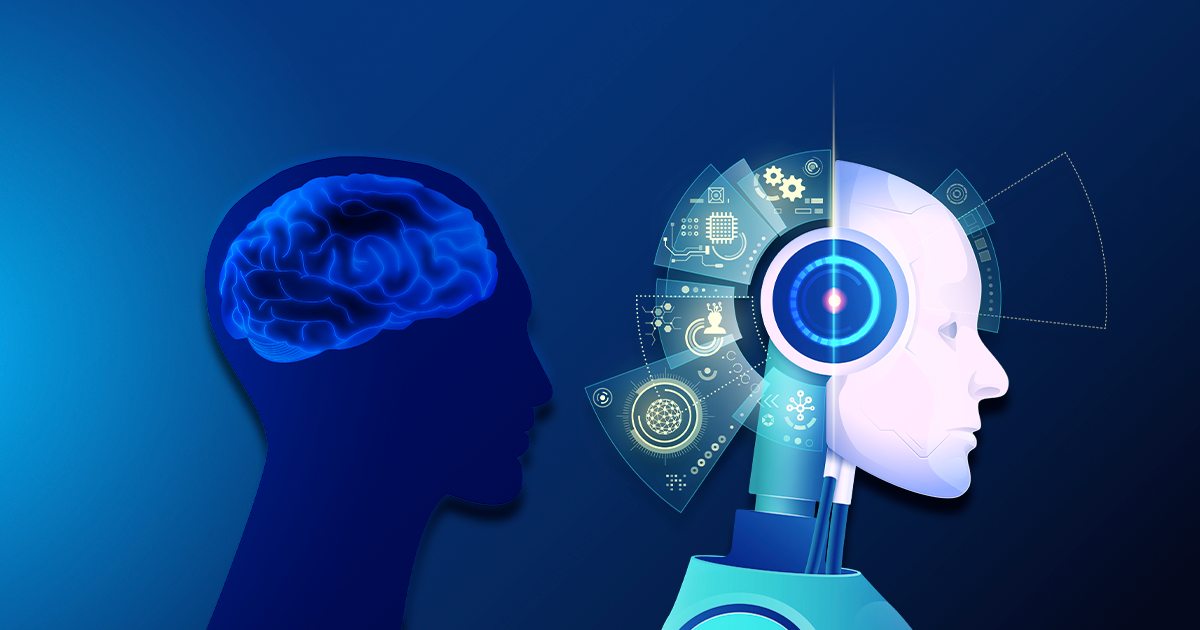In recent times, Artificial Intelligence (AI) has gained considerable attention and justifiably so. While its benefits are indisputable, the associated risks are equally undeniable. Many researchers have drawn attention to the potential risk to humanity associated with AGI. Some of the discussions have brought to focus the tantalizing possibility that AGI may be the next step in the evolutionary process. This calls for exploring AGI from the Evolutionary angle. In this article, we explore the idea that perhaps AGI is the next stage in the evolution of life on the planet and its implications.
Evolution: A Brief Dive
Evolution has been the driving force behind life as we know it today. This process is influenced (and perhaps even determined) by successful modifications in genes. “Successful modification” in this context refers to the ability of the modified life form to adapt to its environment and thrive. Over millions of years, life has evolved to the point where humans now dominate the planet. Based on simple principles, the theory of Evolution provides a credible explanation of the life forms that exist and have been successful in surviving in the planetary environment. The theory of evolution provides the basis on which we understand how life evolved on the planet.
We cannot ignore the fact humans have modified the environment. Accepting that environmental adaptation is crucial for a successful evolutionary step implies that we are actively influencing the course of evolution through the alterations we have made in the environment. It challenges the notion that there is a pre-determined trajectory for evolution, and nature alone determines that course. It is thus reasonable to posit that the process of change is purely random mutations in the genes, not a process that is determined by a pre-ordained goal. However, successful change will necessarily involve adaptation to the altered environment. On this basis, it is reasonable to propose that humans influence the course of Evolution.
While Evolution is good in explaining the dynamics of how various new species emerge, propagate, and thrive, it does not satisfactorily address the question of why there is life on the planet at all. In this sense, the theory packs credible explanatory power but lacks predictive power. Relying solely the theory of evolution makes it challenging to foresee the characteristics of the next dominant species on the planet.
Evolution is inherently slow. It takes a very long time for a new species to establish itself successfully. In fact, the journey of evolution to the present has taken close to three billion years.
In summary, evolution is:
- A random process with no pre-ordained goal, driven by spontaneous changes.
- A result of random changes in the genetic code and the ability of the resulting species to adapt and thrive in the environment.
- A slow, gradual process rather than a sudden change.
As argued earlier, The Theory of Evolution does not have the predictive power to envisage the characteristics of the next dominant species on Earth. Thus, it is reasonable to explore the idea that AI is the next step in the process of Evolution.
AGI: The Tantalizing Next Step?
Let us now examine AGI from the perspective of it being the next step in the evolutionary process. Granted that it lacks many features of what we normally think of as a life form. But that may not be germane at this juncture.
AGI arguably possesses characteristics that are tantalizingly human. In fact, the distinguishing features of homo sapiens that distinguishes us from the rest of the species are cognitive ability, consciousness, and self-awareness. The ability to reason and logically analyse the given information is, perhaps uniquely human. While these characteristics might be there in other animals to some extent, it takes little to see that there is a qualitative difference between other animals and humans in this aspect. It is arguable if AGI is conscious and self-aware, but its cognitive ability is remarkably close to humans. AGI has shown a clear ability to reason like humans.
Another distinct human trait is collective behaviour. Collective behaviour is displayed by non-human species as well to some extent. But humans have been able to make progress by collaborative effort much more effectively than any other species. In fact, humans have leveraged collective intelligence across space and time and this process of development has left an indelible mark in the progress humans have made. Scientific development, Culture, etc are an undeniable result of this collective behaviour. It is not hard to visualize AI being capable of doing this. There is no reason why AI cannot self-organize, learn from the experience of other AI systems, and incorporate them in newer versions of AI.
Arguably, societal mores evolve based on the need to preserve the species. The most effective strategy for survival gets adapted as the cultural practices. It can be argued that various cultures evolved by adopting the most likely practices to ensure survival and propagation of the species. Practices change over time, ensuring adaptability to changing circumstances.
It is also apparent that humans as a species exploited other species to dominate the planer. From domesticating certain species of animals to the betterment of humans to agriculture wherein plant species beneficial to humans were grown almost to the exclusion of natural propagation. There is no reason why a sufficiently capable AI system cannot take this to the next logical level and dominate over the older inhabitants of the planet.
All of this leads us to the reasonable conclusion that AI could very well be the next step in the evolutionary process.
The Double-Edged Consequences of AGI
Having argued that AGI could be the next step in the evolutionary process, it is time to think about what the consequence of such a scenario would be. We shall look at this briefly in this article and elaborate on this further in the articles to follow.
Even if we do not worry about AI being the next logical step in the evolutionary process, AGI has already impacted our way of life. On the positive side, many mundane (and some not so mundane) activities are more effectively accomplished by AGI. That this is done without the hinderances of human problems is remarkable indeed. Where it starts to become a problem is when AGI systems disrupt the established ways of life.
The most immediate is a disruption in how AGI can replace work forces. This is most certainly a disruption with immediate ramifications, but humanity has faced this kind of a disruption a few times and has successfully recovered from such shakeups.
The more serious problem is the challenge AGI poses to established political systems. Deep fake and fake news can derail political processes and undermine democratic institutions that have been painstakingly built over many centuries.
Of a similar nature is the problem of AGI in the hands of a not so benevolent s dictator. The nefarious ambitions of a such a dictator aided by AI can be highly damaging. Even if not for such a dictator, or rogue nations, given the ease with which AGI systems can be built, the resulting AGI-race can be a highly credible challenge to humanity.
While what we desire most is naively to expect AGI systems to work for the benefit of humanity, one undeniable use of AGI systems will be in warfare. In such a scenario, AGI can become a deadly and uncontrollable force. This will be one place where insisting on the “Laws” of robotics (No robot shall harm a human etc.) will not be possible.
Another unforeseen consequence is the unpredictability of the direction an AGI system may take. This opens the possibility that we are faced with an unpredictable future that we have no way of anticipating.
The final challenge might come in the form of AGI becoming a dominant species in the planet. This will be no different from an alien invasion where the “invader” is unimaginably more intelligent and capable than us. What future we face in such a scenario is anybody’s guess.
Conclusions
In this article we have explored the possibility that AGI is a possible next step in the evolutionary process and briefly presented potential problems that AGI systems pose to humanity. We have glossed over the benefits of AGI. In future articles we will examine each of these in depth and explore how we may be able to arrive at solutions that work.




